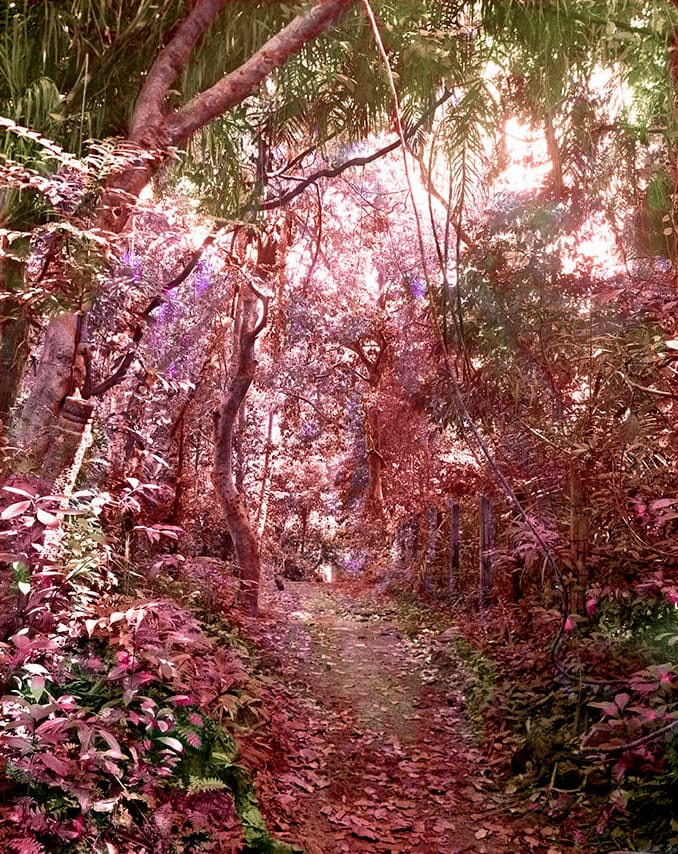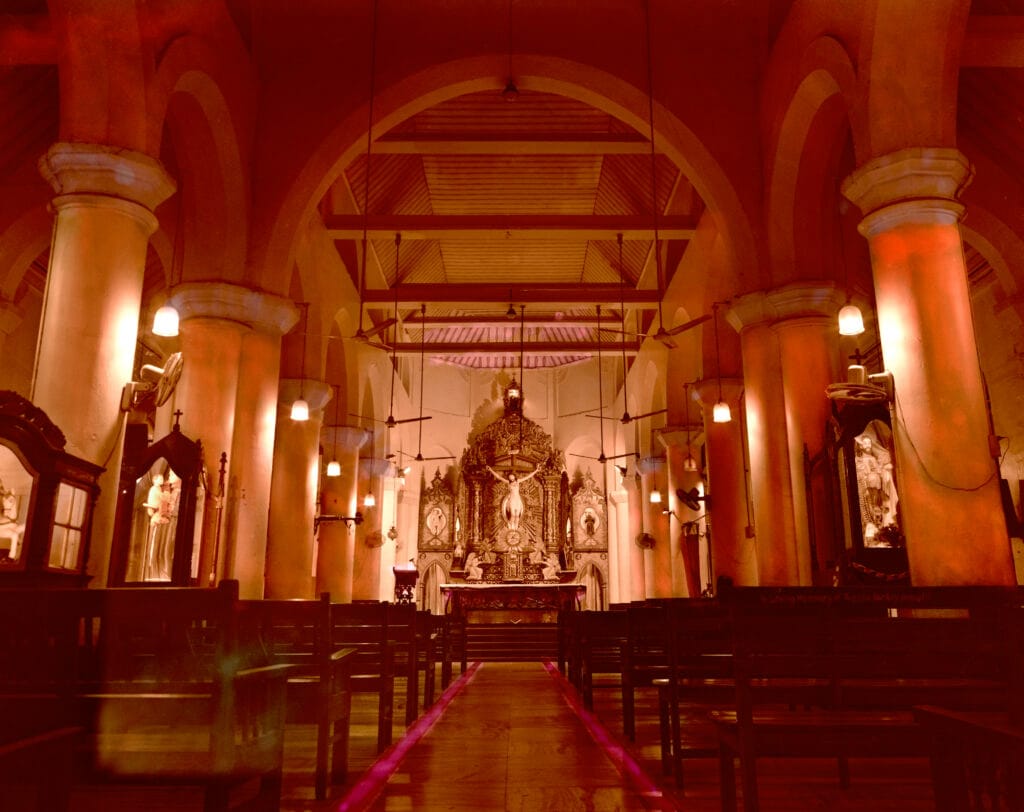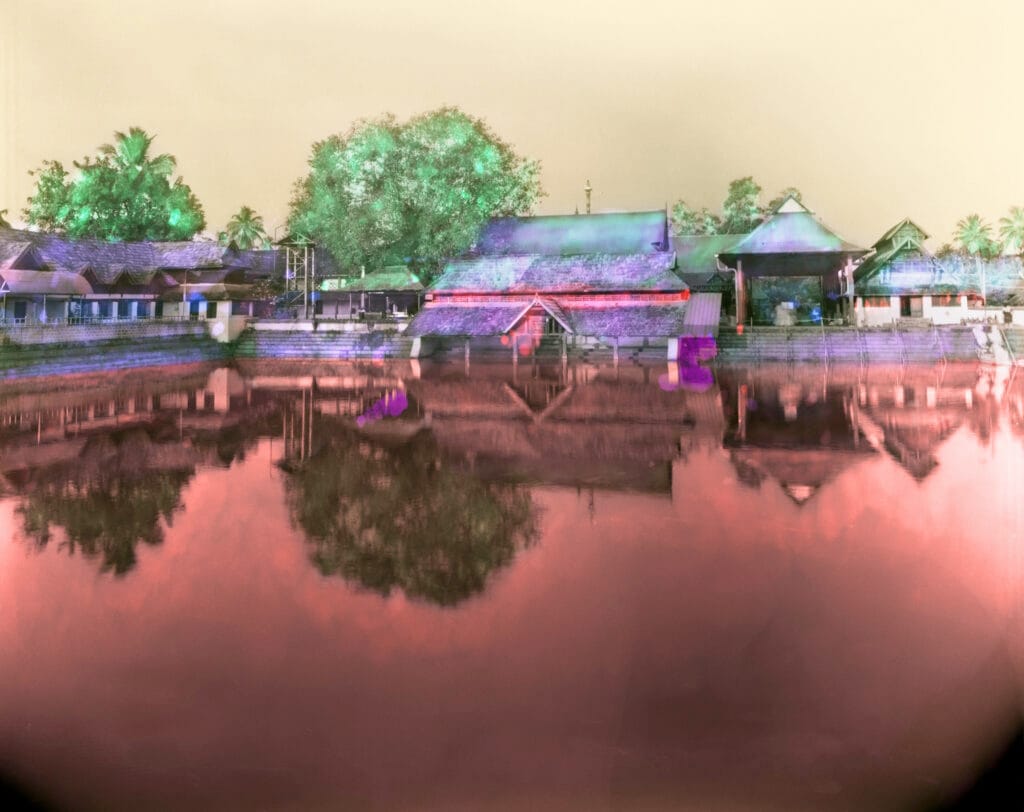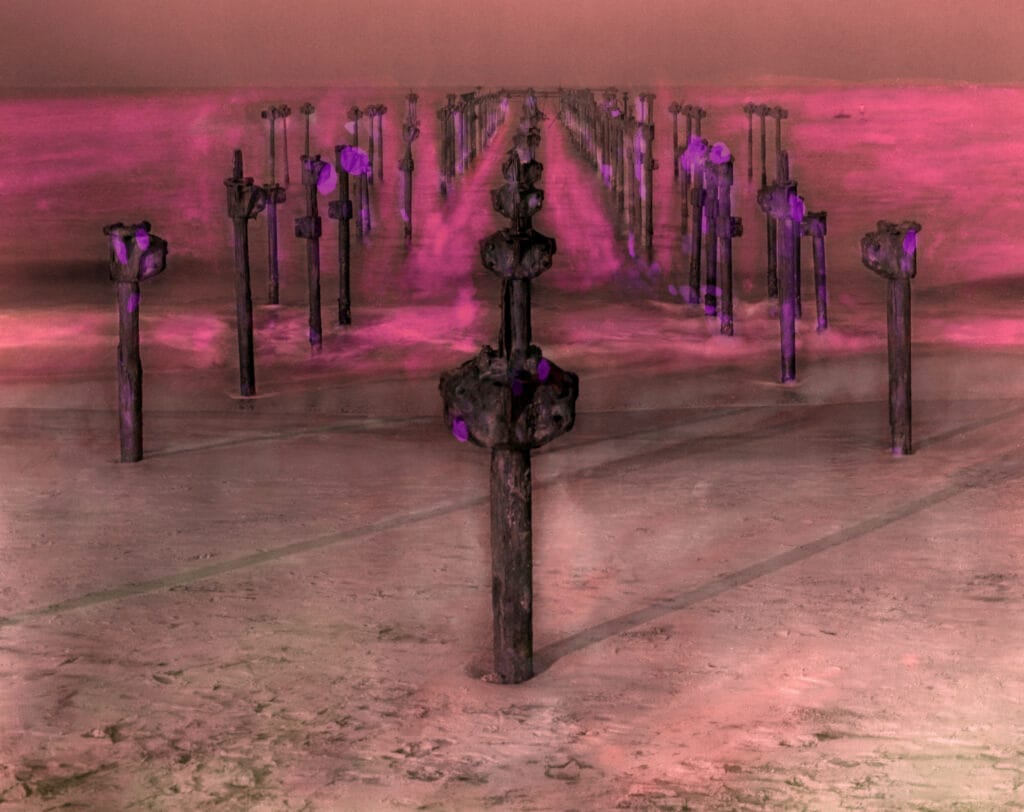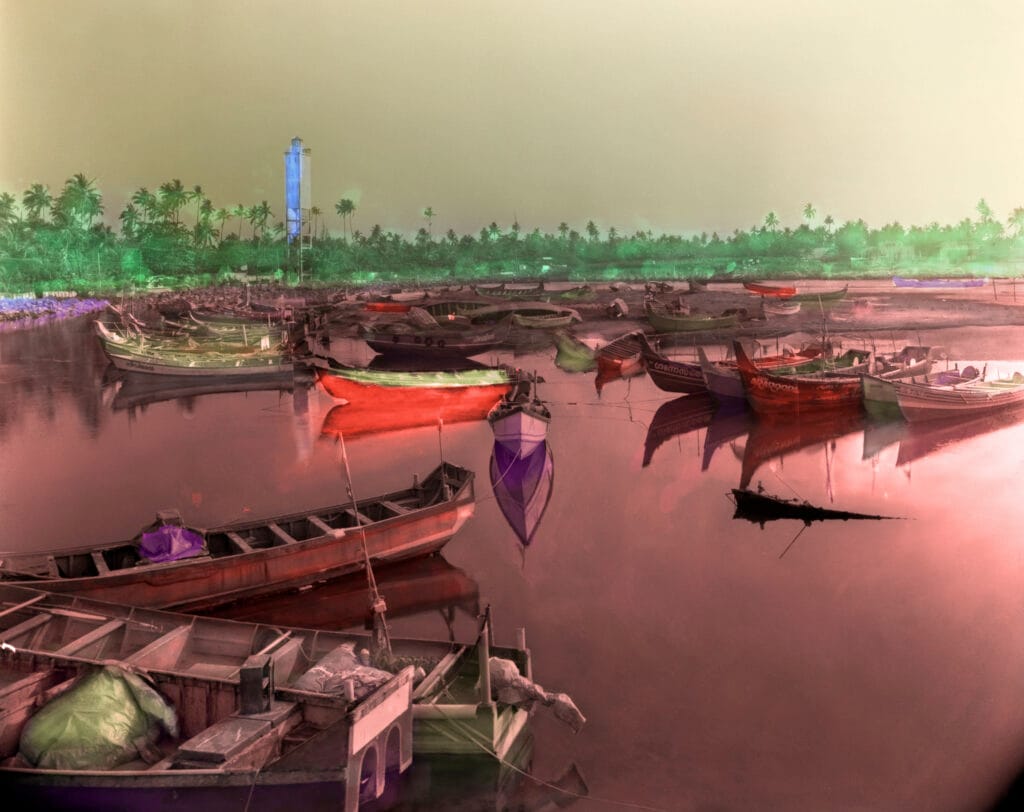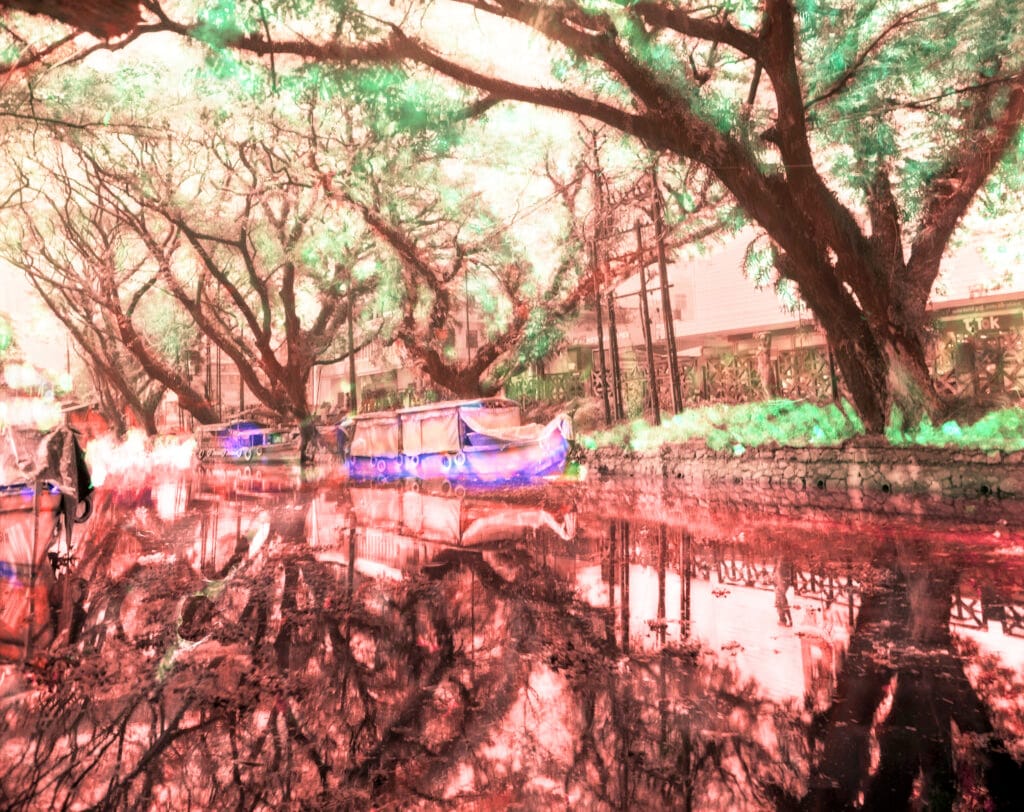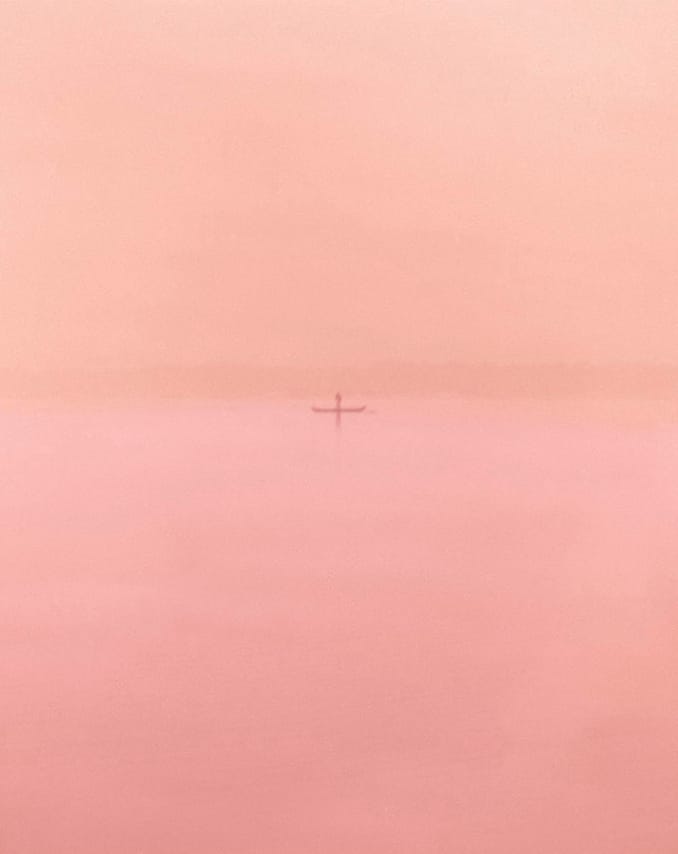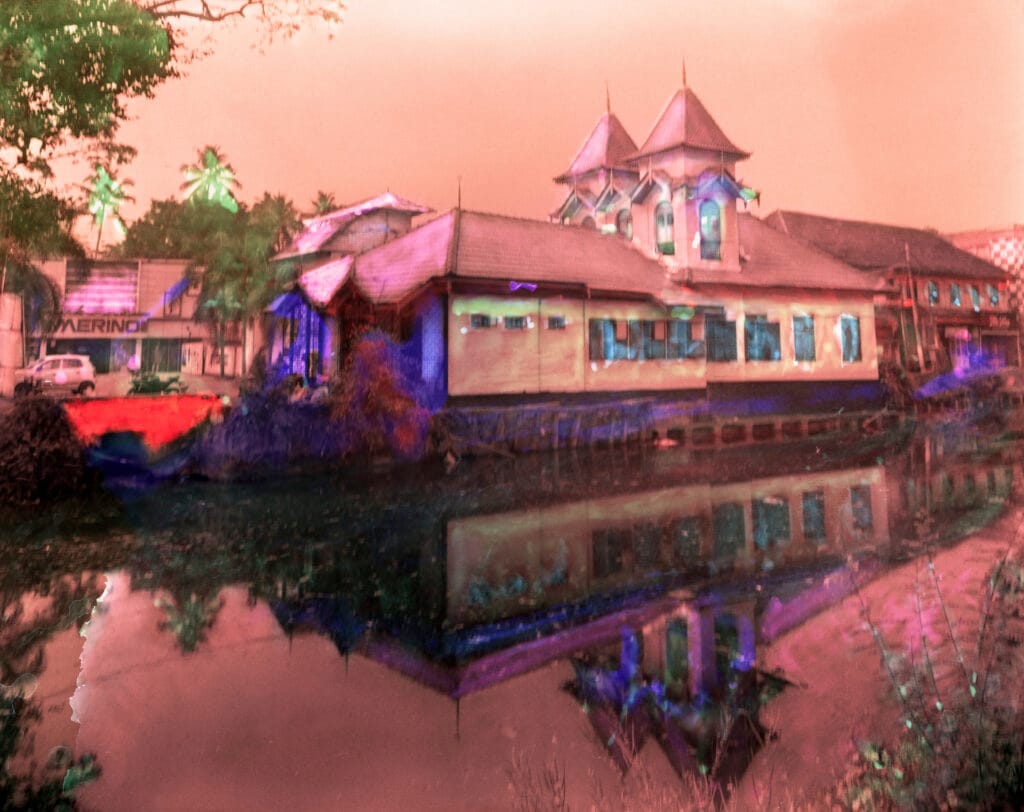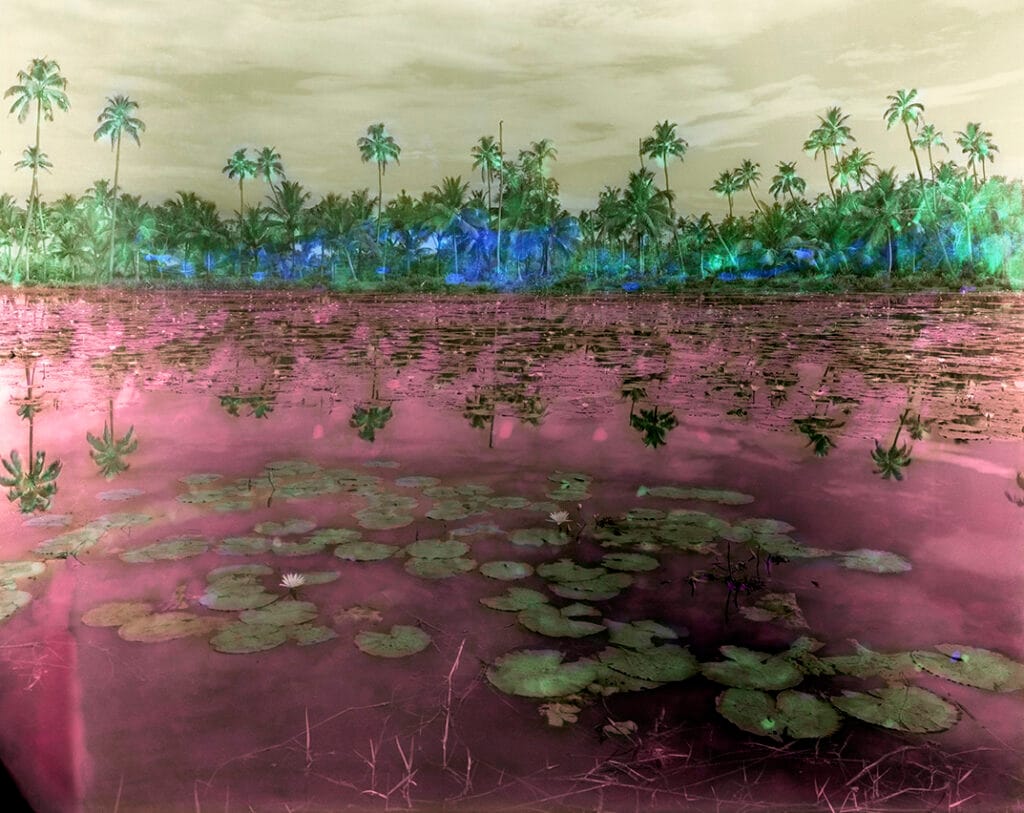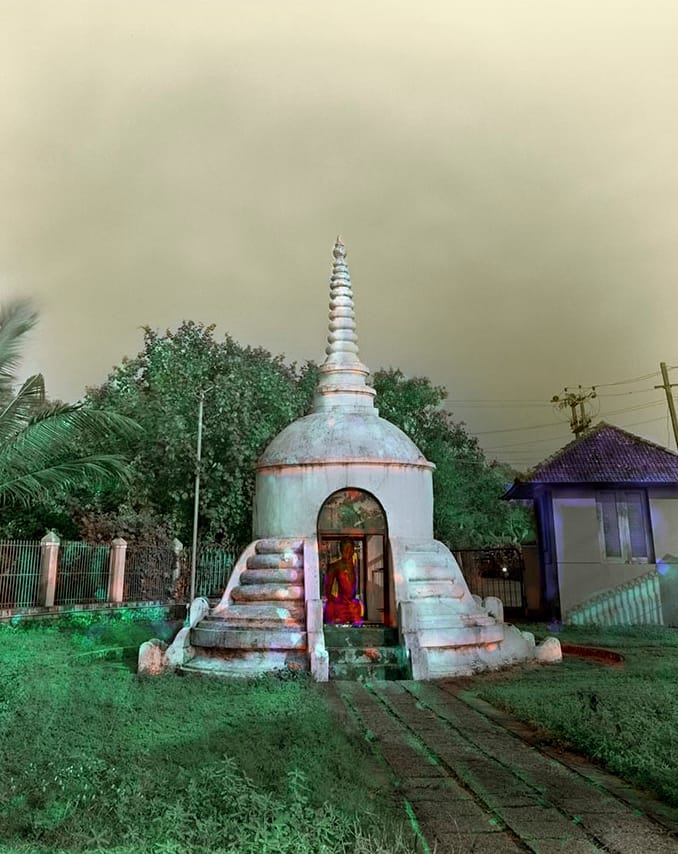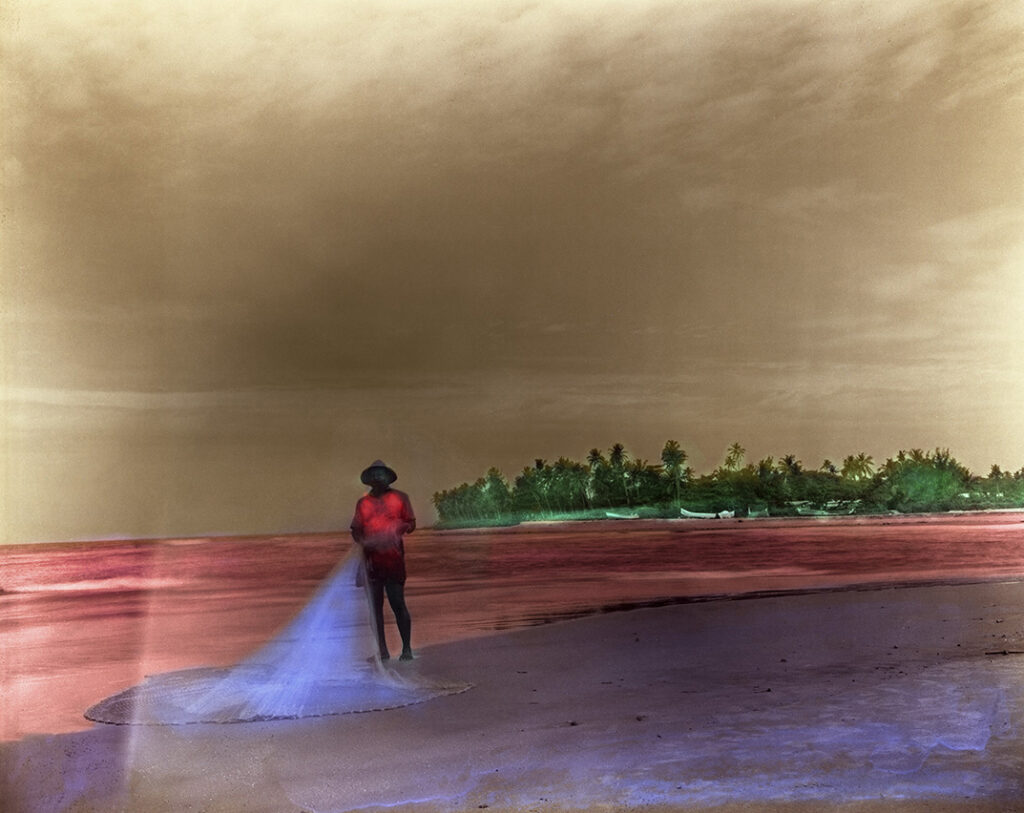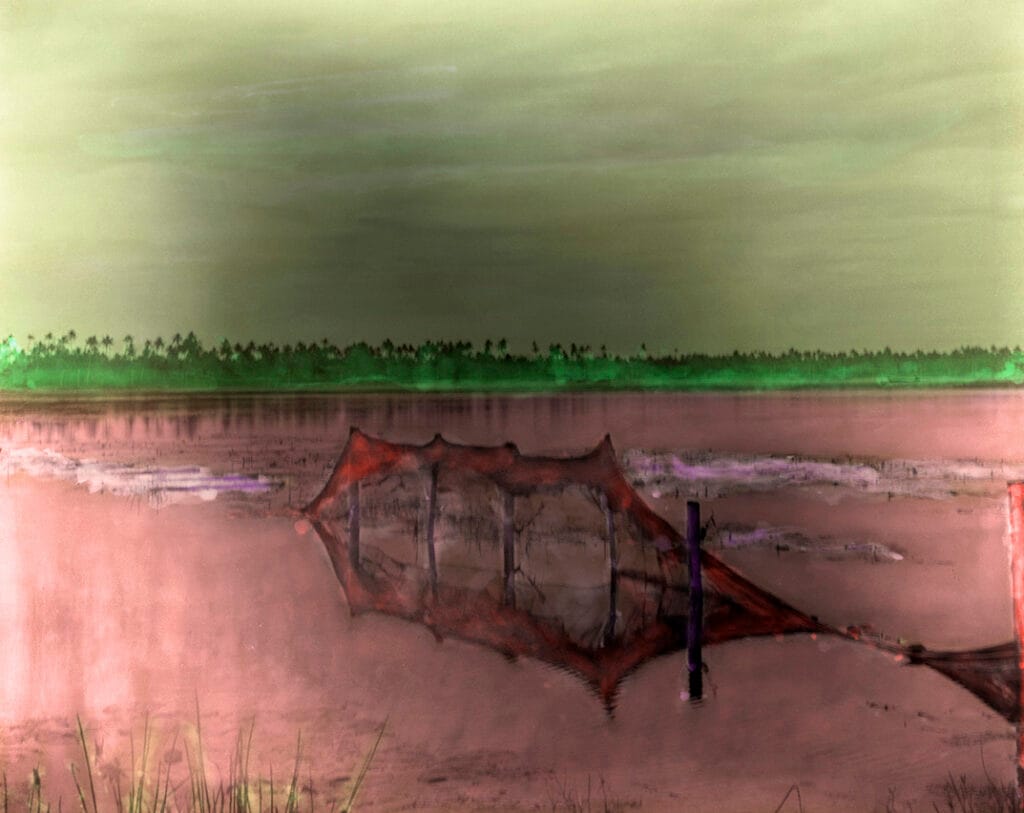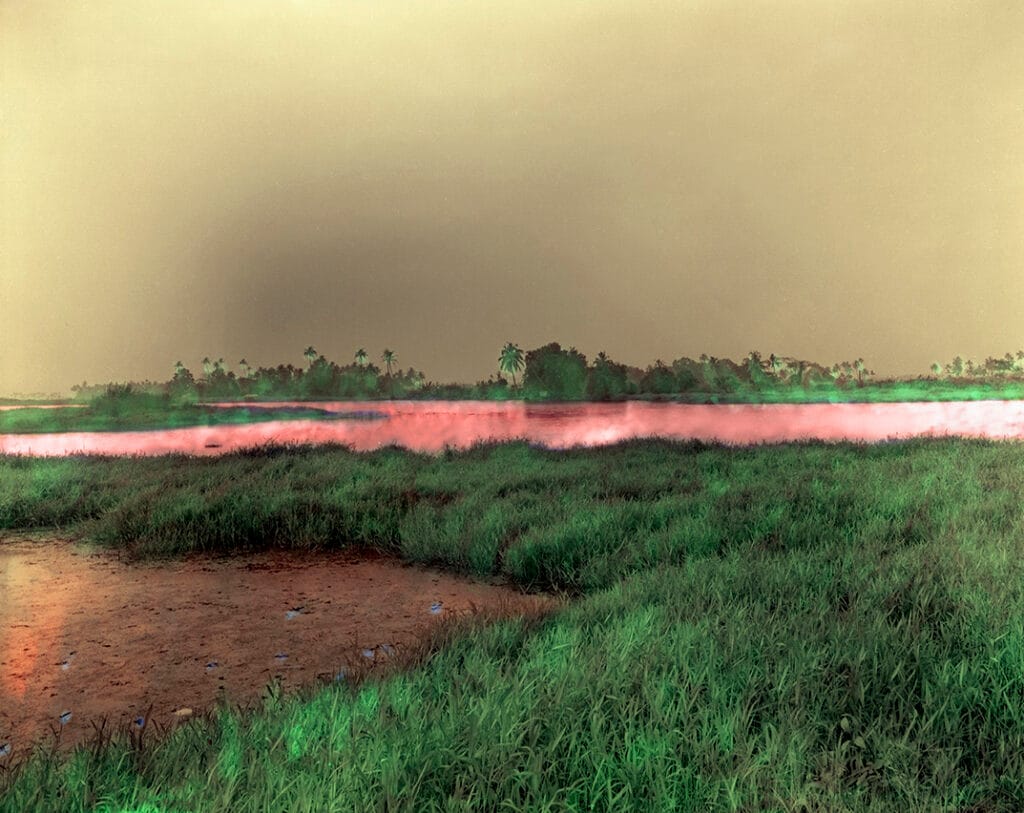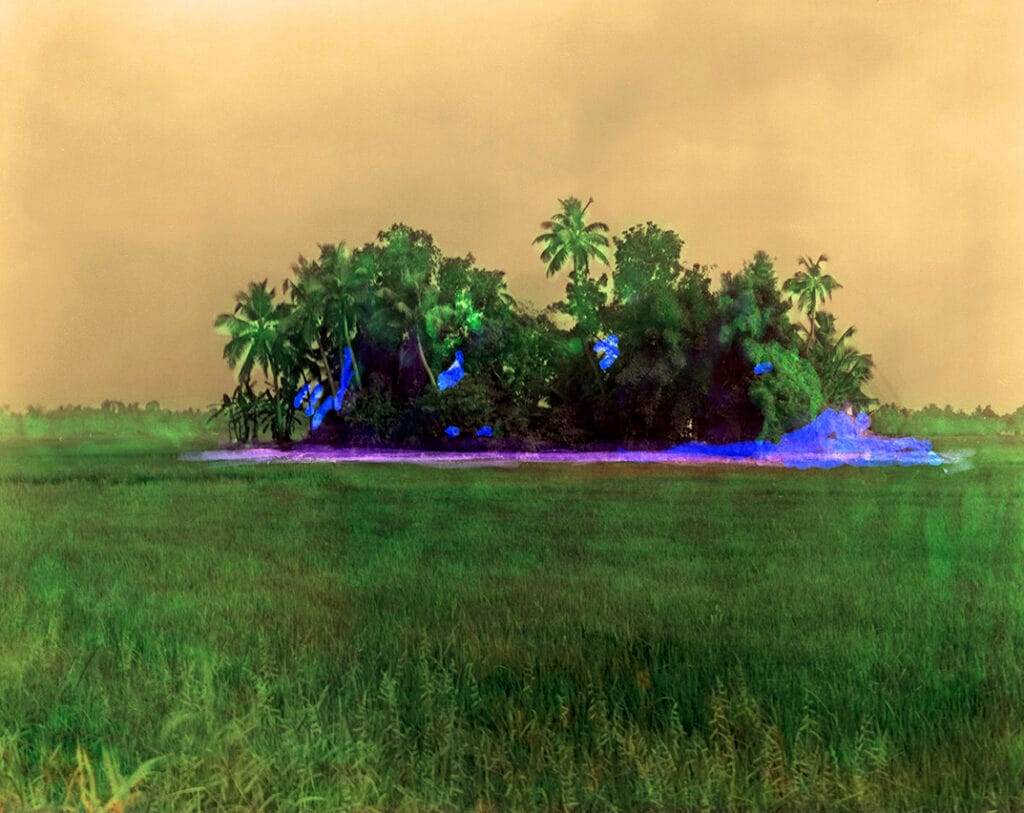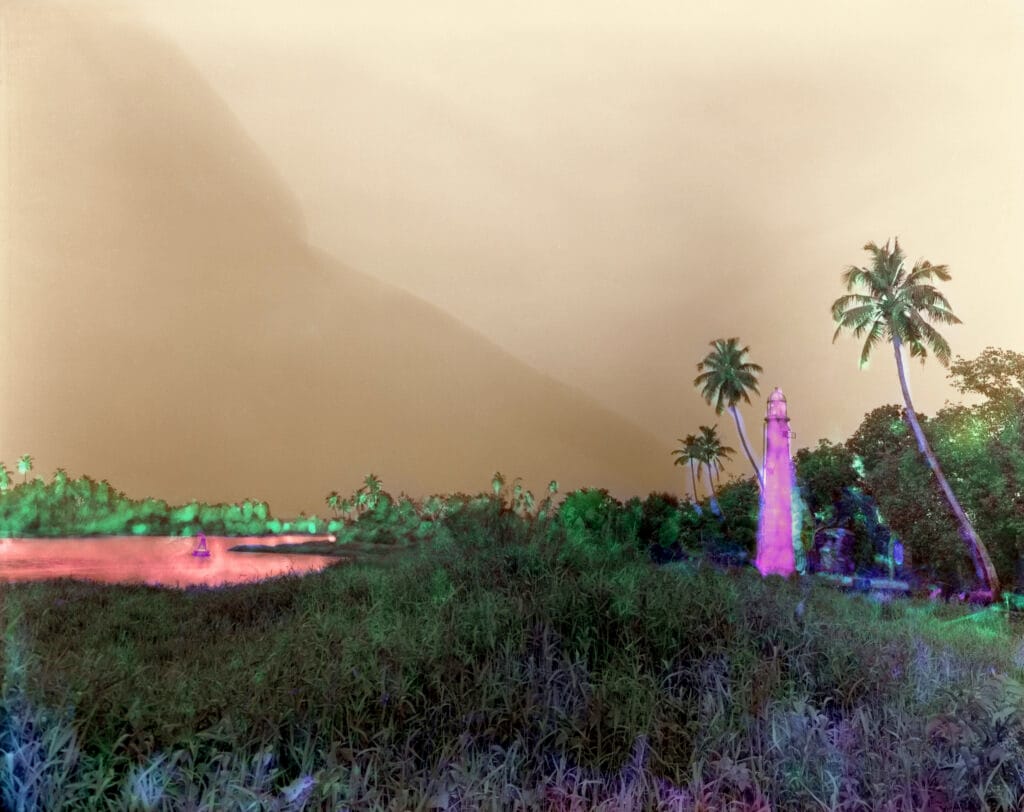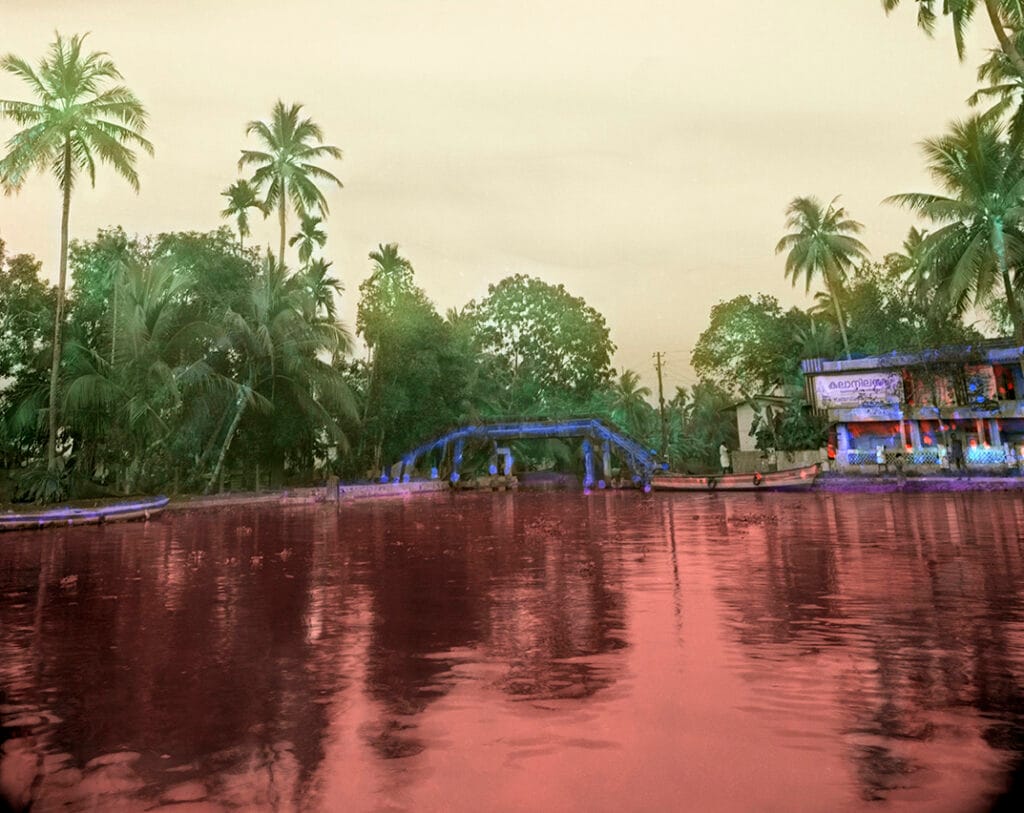As landscapes transform, our relationship with them deepens. Landscapes ensure that collective memories merge with personal ones, creating a shared experience. Despite being marginalized by a dominant narrative that aims to appropriate mofussil narratives, a sense of self still keeps endemic identity rooted in its own truth. This endemic identity is deeply tied to the landscape and the collective memories and experiences of the community, making it a powerful symbol of resistance and self-expression.
Alappuzha has a geography that is in constant flux, though the smallest district in Kerala, it has had a significant role to play in the cultural heritage of the state. In the 2nd century AD, it was the capital of the mighty Chera kingdom at the height of its power. Since then, constant redressals of its identity have left Alappuzha in an enduring state of introspection. The driving force behind landscape photography in this area with a Vageeswari camera (4×5 film sheets) is a cluster of questions pertaining to landscape and its perception, coloured by humane concerns. This project emancipates a minor narrative, addressing endemic culture on its own terms, freeing the landscapes from self-obsessed mainstream narratives with images printed from hand-painted negatives. The photographic process collides with the disruptive expression of a minor narrative.
